Disasters-They Start Out As An Ordinary Day
Obviously, disasters are more significant than just your ordinary day, but they typically start as one. I have been through more than my share of disasters in my lifetime. Some have been major and some not so devastating. Here’s the deal, we need to be prepared every day for whatever comes our way. The first disaster I was involved in was years ago when I was about 16 years old.
Disasters-Start As An Ordinary Day
I lived where snow was falling so beautifully all over the lawns, the sidewalks, and the streets. The trees and bushes in the yard looked just like a Christmas card. But then the temperatures dropped, and they dropped quickly. I had never seen an ice storm. This was in a suburb of Chicago.
Literally, roads had become just like ice skating rinks. Not really safe to ice skate in the extreme cold weather, let alone in the streets (lol). The roads were closed for days, then two weeks.
My cousin and I had to walk to the store to get milk, and whatever else we needed to keep the family from getting too hungry. Keep in mind, I was 16 and I had a pocket of cash walking on a snow-covered sidewalk to the store. I had never lived where it snowed. It was cold, but it was fun because my cousin and I were together and laughing as we walked there.
We laughed until we got to the store. There were lines and the food was rationed for families. WHAT? What is rationing? I soon learned we were allowed one gallon or one quart of milk a week if they had it. I was in that area helping my aunt for a few months and she had recently had a new baby.
I wondered why mom always had a pantry filled with canned goods and bottled fruits. She made bread and taught her daughters to make bread and to be self-reliant, without really realizing the importance of it at the time. Oh, how I wish my mom knew she inspired me to be prepared. She died before I was asked to write a book on food storage and emergency preparedness.
My Book
If you haven’t purchased it, I highly recommend my book: “Prepare Your Family For Survival.” It’s a family-friendly book where no weapons are discussed. I wanted the book to be a teaching tool for classes and family member involvement. It’s available in stores, online, or in almost every bookstore. I was honored to be asked to write it to help people to be prepared for the unexpected.
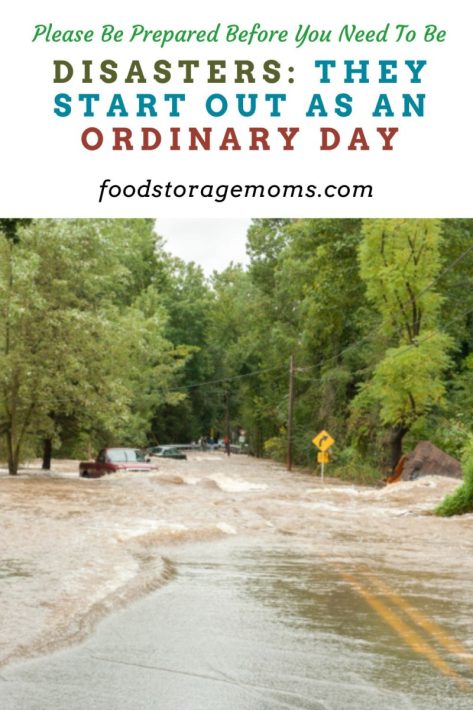
Disasters Start As An Ordinary Day
Typically disasters start out as an ordinary day, although we can have some warning, but often, no warning at all. You would think where we live we all would have some way to be alerted as quickly as possible about the minor or major disasters listed below. Yes, we do hear in some cases beforehand, but other times we won’t hear for several different reasons.
If you only have cell phones, remember that these aren’t automatically on a Reverse 911 Emergency Notification System. If you are at work, at the park, the gym, or driving somewhere and you have your cell phone AND we have a disaster or emergency, your CELL phone will alert you only IF you have registered your cell phone.
I have stressed for years that every family be as self-sufficient as possible. You don’t have to spend all your time and money to make it happen. It does take time to survey your situation and lay out a plan that covers the unique circumstances of your particular family, but it is time well spent.
Do your research and put the plan together. Feel free to check out my archive for pointers and help along the way. It’s a journey we all need to take as we concern ourselves with protecting those we love.
Register Your Cell Phone
You must register your cell phone with your local Reverse 911 Notification System if you want to be notified. You can “Google” Reverse 911 Emergency Notification in your city or county and you should be able to find it. Please do it today!
Common Emergencies to Prepare For:
Some of the emergency situations you’re going to want to know about, before, during, and after the emergency are:
- Floods: here in the western states, it seems like all we hear about are the current drought conditions. Some small communities may be subject to minor flooding, particularly those near burn scars where the foliage has burned right to the ground. There have been recent floods in the southern states in recent weeks, mainly as a result of Hurricane Ian.
- Overflowing rivers, canals, and drain pipes gushing with water from excessive rain or snow melting. These may not be considered a true flood since they could only affect a neighborhood or small community. But if it’s your home, it might as well be a major flood.
- Fires: I recently wrote a post about how to properly prepare your home to prevent a fire, and how to respond if you do. The real challenge in any drought-stricken area is to be prepared if your location is subject to forest or range fires. People don’t always think about the ambers that become airborne and land on roofs and outbuildings in surrounding areas.
- Ice Storms: we don’t seem to have many ice storms in the west, but the east coast states and some mid-west locations see them all the time during the winter months. They not only make travel next to impossible, they generally cause major power outages due to the power lines getting too heavy with the ice and then breaking. If your location is subject to this emergency source, be sure to have things in place at home to deal with no power. That includes trying to stay warm and being able to cook meals.
- Hurricanes: recent Hurricane Ian is a testament to how devastating hurricanes can be. The west coast of Florida will never be the same, and it will take years for many neighborhoods to look anything like they did pre-Ian. These people had many days to try and prepare, but most homes in places like Sanibel Island were destroyed and will have to be rebuilt. Hopefully, these kinds of storms are less likely, and the typical hurricane can be survived with window coverings, sandbags, and other preparatory steps.
- Tornadoes: often we have some time to prepare for a tornado if a storm system is recognized early and the direction is determined. Many families have come to expect tornadoes since they live in states where they are historically frequent. These families are wise to have storm cellars or other locations to hunker down until things settle down. Having your home constructed in such a way that it can “weather” these storms in most cases is money well spent. Having effective evacuation plans is critical for your family’s safety.
- Tsunamis: it seems like we hear about tsunamis infrequently here in the U.S. I do remember hearing about the west coast being subject to a small tsunami this year because of an earthquake near the Hawaiian Islands. If you have property near the ocean, I’m sure you’ve heard about steps to take, and your insurance company may even require special preventive actions they require.
- Riots/Martial Law: the past few years have been rife with reports of riots throughout the country. Some have been in response to civil unrest caused by ethnic groups who feel their rights haven’t been protected. Others are a result of mass shootings and the unrest experienced by nearby neighborhoods. Whatever the cause, be prepared to either bug in and protect your family at home, or know of some places to relocate if you feel you’d be safer evacuating until things quiet down. There have been some curfews put in place, but martial law is a seldom-used governmental action.
- Mass Evacuations: part of your family’s preparedness plan should be when, where, and how to evacuate. I’ve felt that I will probably try to bug in during emergency situations whenever possible. But, there are times that we need to “get out of town,” if you will. You need to listen up if directed to evacuate, that’s why it’s smart to have a battery-powered radio or crank-style unit that you can turn on when the power goes out. You don’t want to wait for the local authorities may knock on your door, it may be almost too late at that point!
- War: thank goodness we haven’t had a war fought on our shores for well over a century. Hopefully, that continues to be the case. If war does irrupt, you will be given some directives from local, state, and federal authorities. Other than having food, water, and other preparedness items ready, there isn’t much you can do to “properly prepare.”
- Pandemics: this is one we should all be very familiar with. As for me, I’ve tried to stay informed, follow instructions regarding distancing, hand washing, wearing a mast as needed, and getting the medications that will best protect me and my loved ones. We each need to make the tough decisions that we feel most comfortable with and not judge each other if we disagree.
- Railroad derailments: this tends to be a fairly local event. It can be devastating if it causes damage to local homes and businesses, but usually, there are right of ways that tend to protect most homes from this type of emergency. If a fire is caused close by, act accordingly.
- Transportation accidents: accidents on the freeway can be a real frustration, but unless you are caught in the accident itself such that personal injury or property damage is experienced, generally these are more a time delay issue than anything.
- Earthquakes: This is one emergency that is tough to plan on since you seldom have any warning. You can best prepare by having your emergency supplies up to date, including food your family will eat, sufficient water, and first aid supplies in case of injury. There may be evacuation directives given in your immediate area, but otherwise, it could just prove to be a challenge getting to work, the store, school, and other destinations until the rubble and road damage are cleared. There have been whole neighborhoods destroyed, but thankfully, that is generally the exception.
- Sewer backups: these waterborne stinky situations can be a real challenge at times. We’ve had subdivision construction mistakes down the street cause our home sewer lines to back up, particularly in the basement showers. Cleanup can be a real challenge, and one none of us want to experience. Just be sure your own family doesn’t cause the problem by flushing things down the toilet that can cause blockage and the resulting backup.
- Waterlines are broken: this seems to be most often experienced on exterior walls during VERY cold and windy conditions. If you’re concerned, make sure any of those exposed pipes are insulated. Also, open cabinet doors so warm air can keep the water lines/pipes from freezing.
- Water contamination in local water systems: you can’t do much to correct a situation caused by the local municipality or utility, but you can have sufficient water stored for a short-term problem, or an efficient water filtering system installed for longer-term protection. I truly believe in having a reverse osmosis system. I feel much more comfortable taking water right from the tape since we had one installed. Yes, they do need to be serviced about once a year, but it saves time, money, and the inconvenience of having to purchase those large 5-gallon bottles and a dispensing machine.
Final Word
Please be prepared for the unexpected, a disaster or unforeseen emergency could strike your neighborhood at any time. Are you prepared with water, food, cooking devices, and fuel? Please start with one thing at a time. You don’t need to go into debt to be prepared.
We can’t think that the government will have supplies for our cities, nope, it’s not going to happen for days, weeks, or possibly months. Just picture grocery stores empty after a disaster because they will be empty in 24-48 hours, with no telling how long it will take to restock those shelves.
Transportation systems are generally disrupted, so who knows if the roads, warehouses, gas stations, and other supply resources will be available.
Your home can be subject to disruption and damage, whether large or small. Please remember to store bleach for cleaning up sewage, or whatever, and rotate it every 6-9 months.
Trust me, we will need it. Please keep your gas tank 3/4 full and have cash on hand like fives and ones. If we lose power, the ATMs, the gas stations, the pharmacy, and some stores will not be able to process your debit or credit cards. The gas pumps won’t work without electricity. Hard cash will work if you need it on any not-so-ordinary day. May God Bless this world, Linda
Copyright Image: Disaster by Jeremy Adobe Stock Images, Hurricane Waters Flooding AdobeStock_102443579 by World Travel Photos

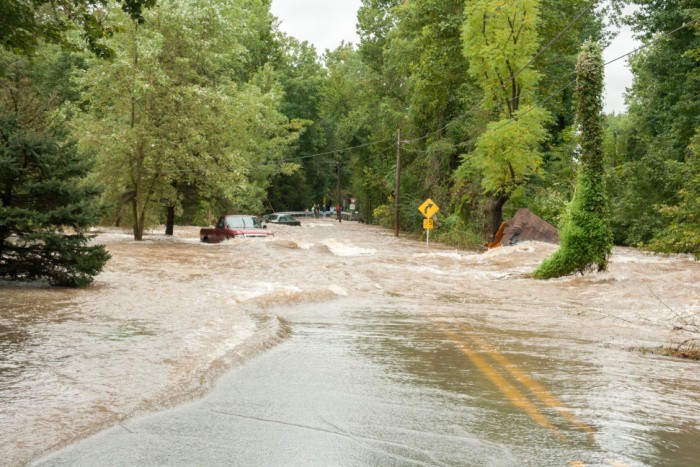

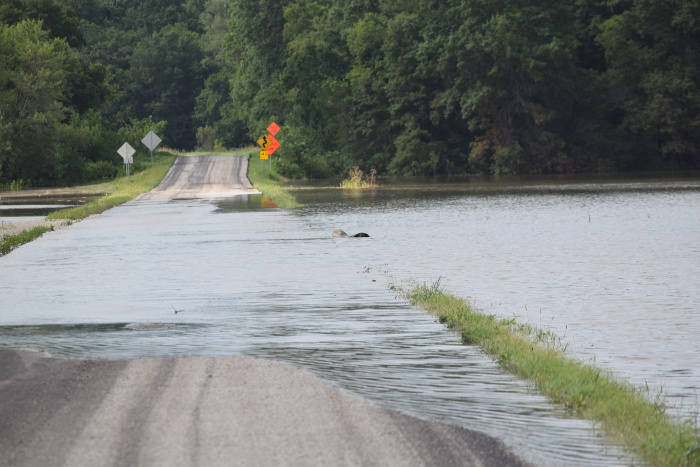
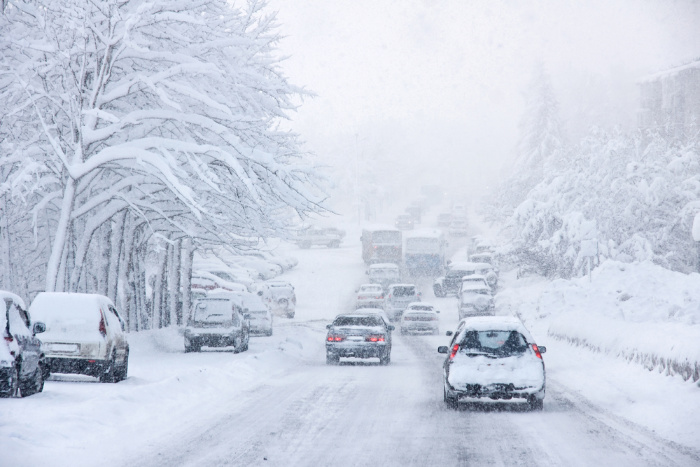

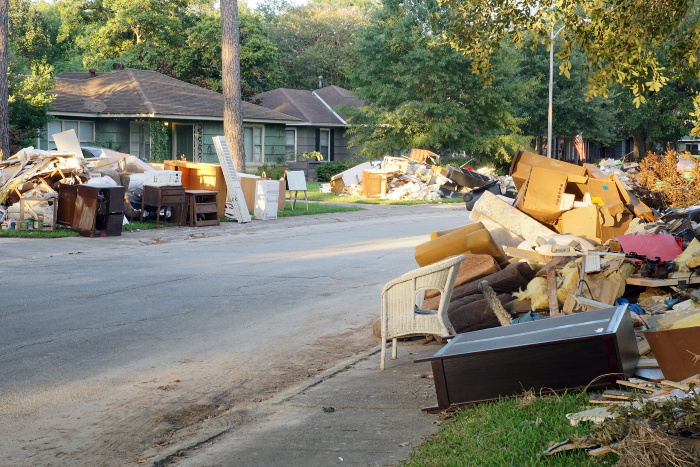
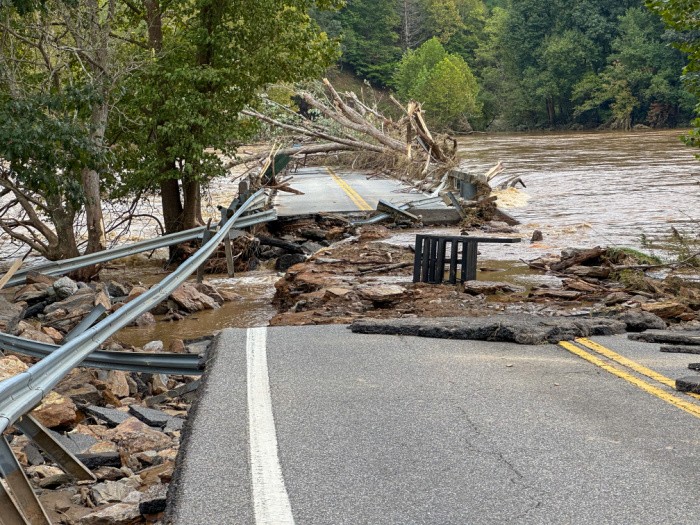
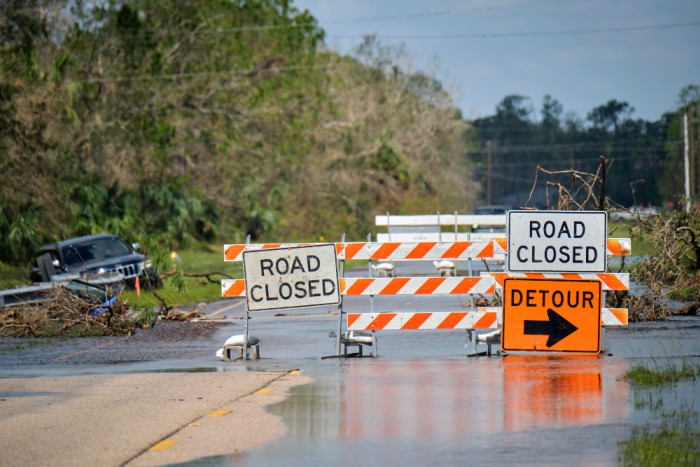
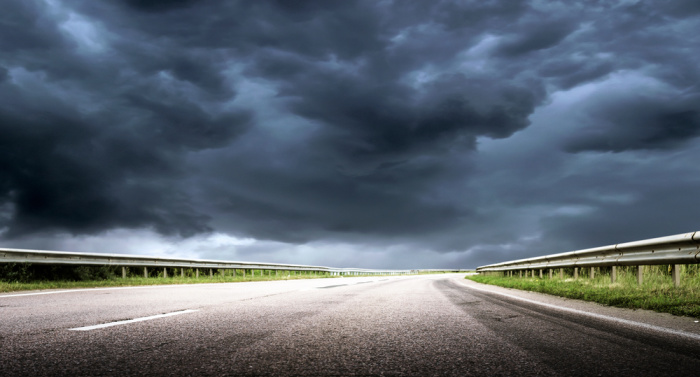

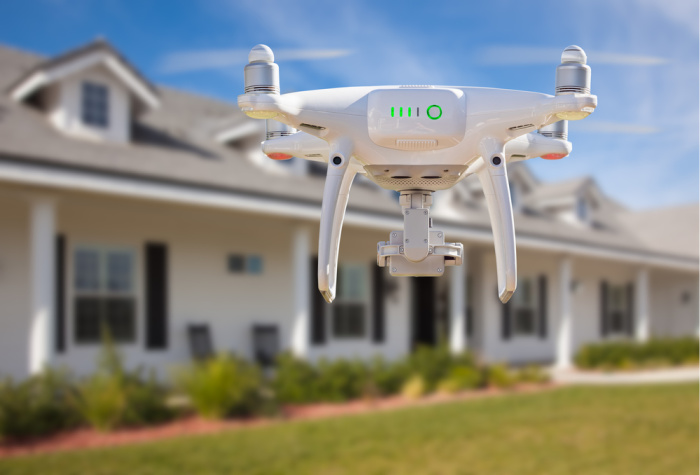
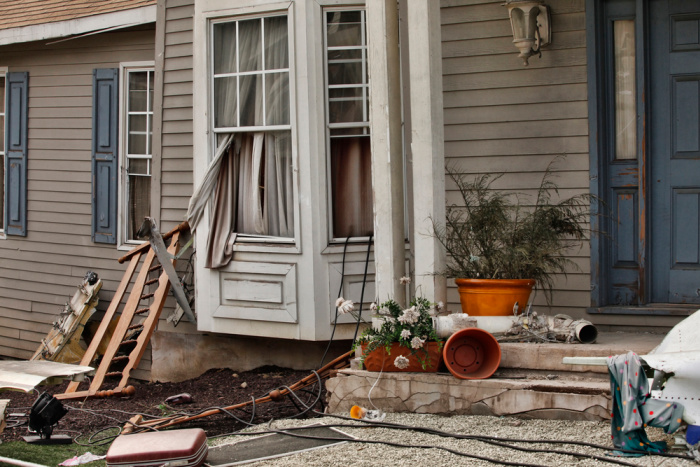
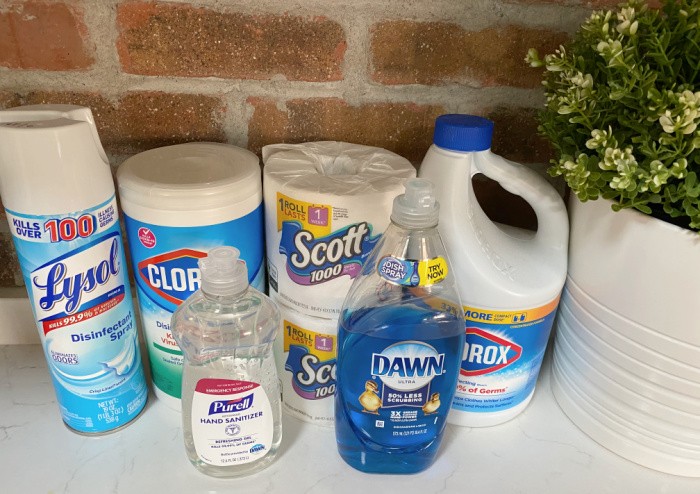
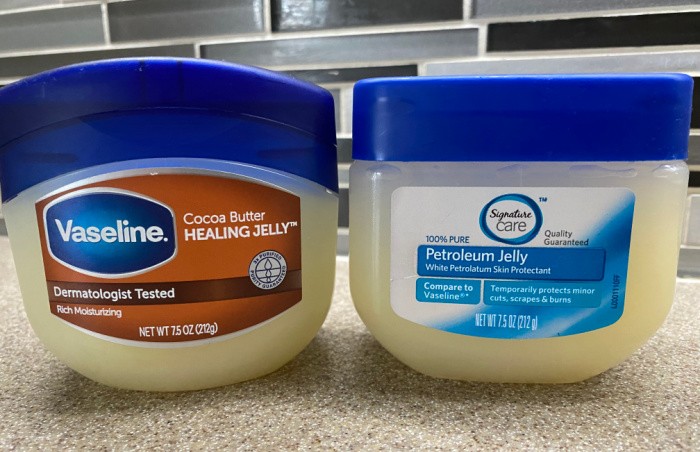
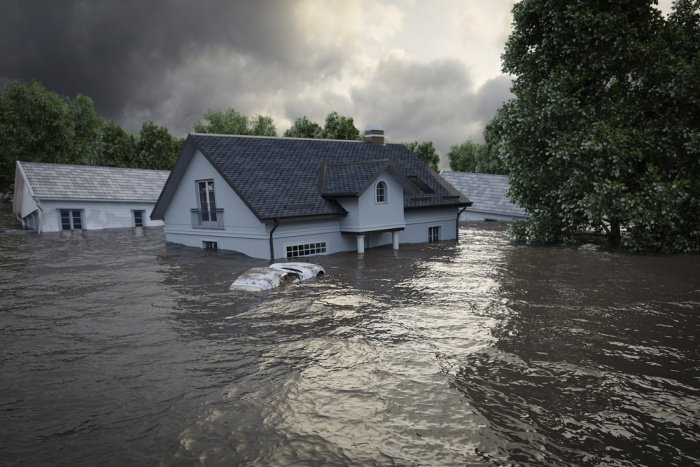


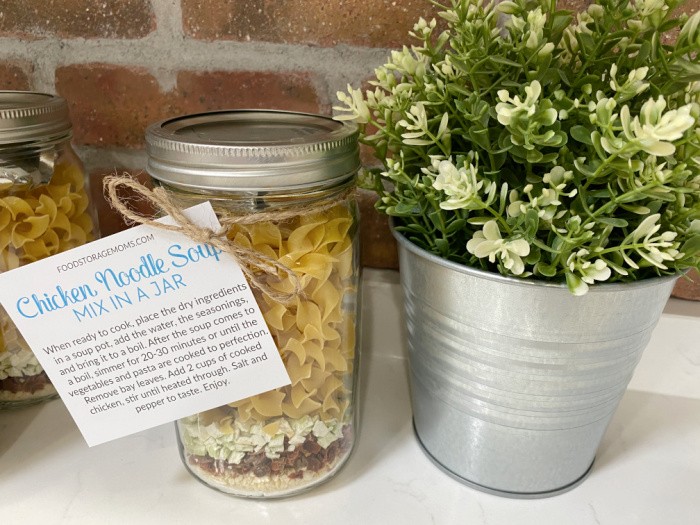
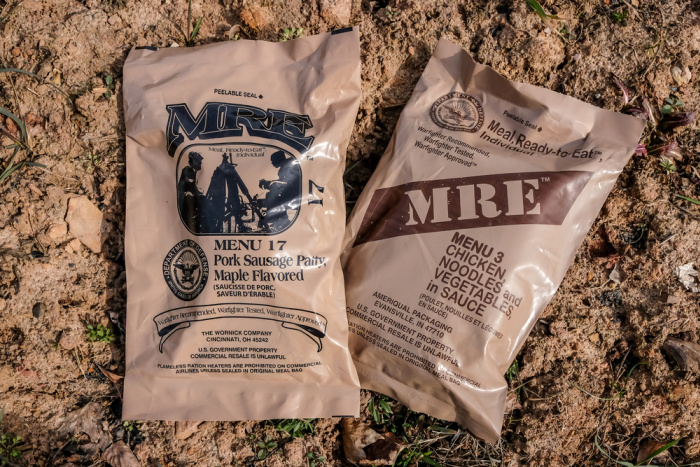


That’s what I remember about 9/11. It was a beautiful, ordinary day. Good post.
Oh Janet, oh my gosh, that’s so true. Thank you!! Linda
Janet, I remember driving along that day in Mpls, had the radio on, rather than my CD player. Then, the emergency broadcast came on. Wow. I was very glad I hadn’t headed out of town for work yet. I DO remember how in the following days, people were grabbing plastic rolls and duct tape from the stores. Generators were flying off the shelves. Don’t recall people going loading up on food or water, but maybe in other areas? I headed home pretty quick as my oldest son (young adult) was caring for our Littles. I do have to say my son and I both shook our heads when people talked about using the plastic and tape to protect themselves in their basements. This was way before I’d ever even heard of ‘prepping’. We just paid attention to the news. And, kinda checked our normal home supplies, just in case. I admired how Bush gave his very calm speech, and I think it made a difference in stopping big panic. Does anyone else remember people buying things like plastic and duct tape?
Linda, this is a good time for your article: our nation has just come thru a wierd rough winter, followed by tornadoes down south…I’m sure many will face flooding very soon…I hope people who read your articles will remind others to Really Think about where they live, what could come their way just from localized disasters. Warnings ahead of things like fires, floods, and hurricanes can make a lot of difference but having some things ready ahead of time is just as important: important documents, extra cash, a full tank of gas, a bag with some essentials in it. Imagine what a difference these things could’ve made for those affected by Katrina or the latest CA wildfires. Having a backup place to go well away from the area is important too. I wonder how many people remember these events, take any steps to have themselves ready for the next disaster. I think it will still be those of us who are dubbed ‘preppers’. Peace to all, and let’s check our stuff!
Great comment, please everyone check all your supplies and preps my friends. We do not want to be the people standing in line at the city and county building needing food and water. We are self-reliant. May God bless this world, Linda
I think it was what got me started on preparing for emergencies. I do remember for the next couple months, whenever I saw a friend in a store, I gave them a hug. It showed how ephemeral things can be.
I think I started hugging people that weekend too! Plus, it’s never stopped. Life is so fragile. Linda
I remember seeing pictures of people buying duct tape and plastic sheeting. Linda
Exactly! 9/11 was an exciting day for me, my oldest daughter was to start preschool. We got up, got ready, had breakfast, checked her backpack for about the millionth time and I got both kids in carseats to drive to the local nature center where the preschool was located. During the 15 minute drive, we listened to music on tape and sang along.
My first indication that something had happened was that a television had been rolled into the back of the nature center and everyone was gathered around it watching something. The kids and I walked down the steps to the basement level where to preschool classroom was located. There one of the teacher was trying to reassure me that everything would be fine and that her co-teacher had been teaching in Oklahoma City when the federal building was bombed and knew how to talk to preschool kids about disasters. I stopped her there and said “obviously, I have missed something, what is happening?” That when I learned about the planes crashing into buildings.
In addition to all the items that you listed there is also medical emergencies. We can’t be prepared for all medical emergencies, but knowing what to do when a loved one is injured or in an accident and having a plan in place can help.
October 4, 2016 was a beautiful fall day. I dropped my youngest off at the high school and stopped at the grocery store on the way home. I got home and was putting items into the freezer and then turned to go to the other side of the kitchen. Next thing I knew I was on my back on the floor in the most pain I had experienced. We had no plan if something like this happened. I tried to call my husband’s cell phone and did not get an answer. Later I found out he had left it at home that day. I called 911. I gave the dispatcher the code to enter the garage. When the fire, rescue and police arrived (all had to respond to all 911 calls), they couldn’t get the garage code to work. They were one step away from breaking a window in my backdoor to be able to get in to help me when one of the rescue personnel decided to try changing the battery in the garage keypad. Yep, the battery died that morning. The very nice EMTs got me on a stretcher and across the backyard to the front of the house and took me to the closest ER. I did not have my husband’s work phone, I only had called on his cell. A very nice lady at the hospital managed to find the number and get in touch with my husband. The EMTs had taken my cell phone and put it in my purse, later I discovered he had turned it off.
The across the street neighbor, who’s daughter is a friend of my oldest daughter, called her daughter and had her call my daughter to find out what was happening. My daughter was in college 2 hours away from home and since my husband didn’t know what had happened, no-one had called her. She couldn’t get me or my husband and didn’t know what happened or what to do. She got in the car and drove home, very worried because she couldn’t get in touch with anyone. I had one surgery at the first hospital and then it was discovered there was another problem and that hospital didn’t have the necessary specialist. About the time the high school was being dismissed, I was being transferred to a new hospital. My husband realized he would never get there in time, so he called and talked to an administrator who pulled our youngest out to class to tell her what happened and then had her stay in the guidance office until my husband could get there as he moved between hospitals.
We really needed a plan. What to do if we couldn’t reach the best family member. Who should be calling the kids and when. In that case, who could pick the child up at school. Should we have a key hidden where the information could be passed on to emergency personnel? A list of home, cell, and work numbers for all family members.
Before this incident, I had been preparing and freezing meals to make my life easier. That prep work was a life saver as I was in the hospital for 3 months. My husband had to take on everything at the house, getting our youngest to and from everything, finish teaching the youngest to drive so she could get her license, all while working and visiting me in the hospital.
I got serious about prepping for emergencies after that.
Hi Topaz, oh my gosh, your comment will teach others to be prepared at all times. We NEVER know when a personal emergency will be our own. Boy, I’m glad things worked out for you. God bless you and your family, Linda
With my careers and life there are no ordinary days until they are over and the next one starts. Preparation is key along with adaption.
Any ordinary day is a blessing to not be taken lightly and made the most of. Remember to prepare but also enjoy.
Hi Matt, you are so right! We need to enjoy ordinary days! Life is good. Linda
We have lived thru blizzards and snowstorms, but it is now more important than ever we prepare for the likes of 9/11. The Whitehouse seems determined, almost gleeful to get us in another war. We live close to the Canadian border and often went across just for the day. My husband and I were in Canada near the Falls on a beautiful warm autumn day, when the second plane hit. Rumors began immediately that the border was being shut down, so we headed home. The usual busling Lewiston-Queenston bridge was eerily quiet. No one honked their horns. Big burly truckers had tears in their eyes. Border patrol was exceptionally cautious. We went right to our kids school to let them know we had gotten back across. I did not notice any shortages, but maybe because we had already been preparing for winter. Please God, now more than ever we need your help.
Hi Chris, wow, wow, wow. This is scary. I heard something similar to this about a year ago. When will this stop? I have always wanted to go to the Canadian side to see Niagara Falls. It’s on my bucket list, well my bucket list is much smaller now. Your comment nails it for me. It’s really sad. God please help all of us. Linda
We have been having lots of bad fires here in Missouri for the last 2 weeks. And some have not been too far from us. It is so dry, and the wind is a problem. The combines are hot and they start a spark and the wind catches it. Wooldridge, Mo, a tiny town, lost 23 of their homes on Saturday evening, it is basically gone. But no deaths. This is just on the other side of Booneville. We are a half hour from Booneville. A portion of I-70 was shut down because of smoke affecting visibility. We are 1.5 miles from 70.
This is all quite scary. I always tell God that I do not take His protection lightly. I think someday when we get to heaven, we will find out all the times He has saved us from danger.
Love you Linda, God bless you,
Jackie Perkins
Hi Jackie, oh my gosh, those fires and the smoke are way too close to you and your family. A tiny town to lose 23 homes, is terrible. Having zero deaths is a blessing, but with the cleanup and rebuild, there are no words to say how sorry I am for all of those families and emergency responders. Love you to you, Jackie! May God Bless your family to be safe. Hugs from Utah.